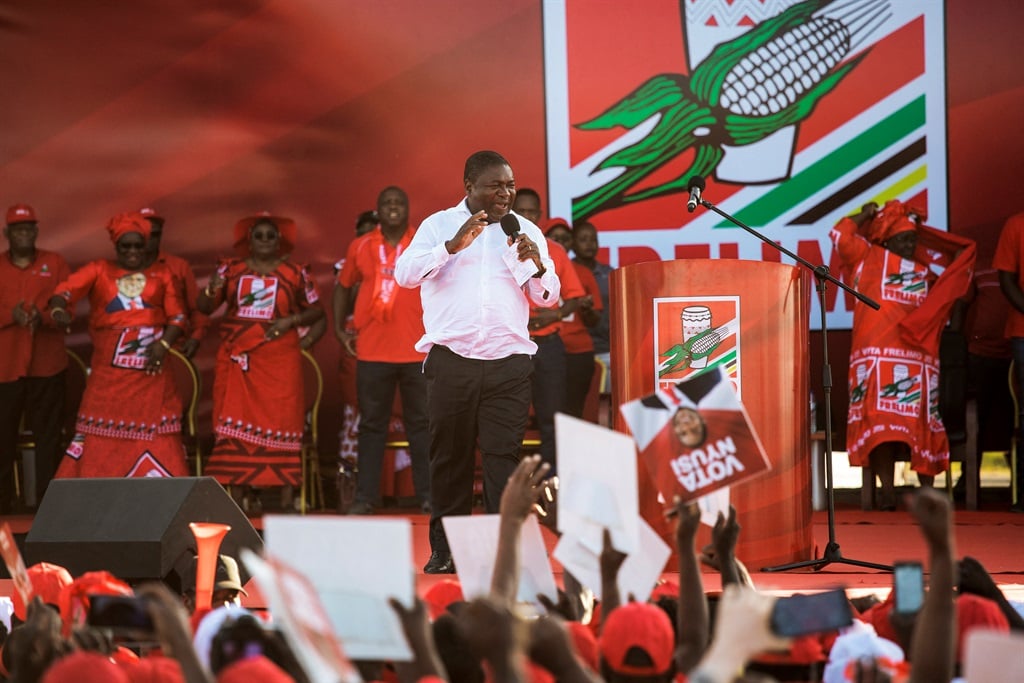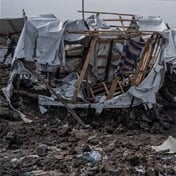
- The political party, Frelimo is tipped to win Mozambique's upcoming elections, retaining the power it has held since independence.
- It is fielding the country's first likely president who was not a guerrilla fighter.
- Daniel Chapo, born two years after Mozambique gained independence, may have Filipe Nyusi hovering in the background.
- News24 spoke to analyst Marisa Lourenço about Frelimo, Chapo and Nyusi.
When Mozambique gained independence from Portugal in 1975, Daniel Francisco Chapo was only 2 years old. Now he will be the presidential candidate for Frelimo, that country's ruling party since independence.
He will also be its first non-combatant in charge. From founding president Samora Machel to incumbent President Filipe Nyusi, all of Mozambique's leaders have been former guerrillas under Frelimo.
Former fighters were in the running for candidacy, some heavily favoured for it, but the nearly born-free Chapo beat them to the nomination.
If he wins, he will face high expectations as one of Africa's poorest countries seeks to combat jihadism while exploiting gas riches.
News24 spoke to Marisa Lourenço, a political and economic risk analyst with a deep understanding of Lusophone Africa, about Mozambique's likely next president.
READ MORE | Test for democracy: Africa 'jam packed' with elections in 2024
Q: What was the fuss about Frelimo's internal election process?
A: It's almost certain Frelimo will emerge victorious at the upcoming polls. This will be done through a combination of its liberation credentials (it fought against Portuguese colonialism until independence in 1975); its enormous organisational and mobilisation capacity; the demise of the key opposition parties, the Mozambican National Resistance and Mozambique Democratic Movement; and rigging through voter intimidation and ballot stuffing.
This means that whoever was chosen as the incoming Frelimo president is more than likely to be the next head of state, making an internal party matter a wider national issue.
Q: Frelimo's presidential candidate selection is always a tightly guarded secret until voting time. Can you explain how the process works?
A: There is a central committee, made up of 250 elected party members, with representation from all 11 provinces, and a political commission, which has 19 members, including the incumbent president and the party secretary-general.
The remaining 17 are senior politicians, often handpicked by the former president (depending on his hold over the party once he leaves office) and the incumbent (depending on the extent to which he has managed to get his allies into the inner circle).
While the central committee meets twice or three times a year, the political commission meets every week, underlining its position as the most powerful decision-making body in Frelimo.
In an election year, the political commission presents a shortlist to the central committee, usually by mid-March, with up to three names, from which the central committee will vote.
If the central committee indicates displeasure with the selection, it can reject the list or request that the political commission add new names.
The winning candidate must receive more than 50% of the total vote.
Failing that, a run-off between the two candidates with the highest vote shares is held.
ALSO READ | Mozambique's Constitutional Council to rule on disputed election results; Renamo readies for protest
Q: There was a lot of drama this time around. Can you tell us about it?
A: Well, March came and went without a shortlist or explanation, and so did April.
Eventually, an extraordinary meeting on the question of the presidential succession was called for 4 and 5 May.
The most likely reason for the delay was Nyusi's manoeuvring behind the scenes. He is the outgoing president but wants to stay in control behind the scenes, through his allies.
Indicative of Nyusi's and the political commission's struggle to achieve this, at the end of April, local news outlets reported that the central committee had outright rejected the political commission's first shortlist.
The political commission on 4 May finally presented three candidates for consideration to the central committee: Roques Silva, the Frelimo secretary-general; Chapo, who is also governor of Inhambane province; and Damião José, a member of the political commission.
The central committee, still dissatisfied with the list, requested additional candidates for consideration, though to its surprise – and consternation – on 5 May there appeared two of Nyusi's allies, without regard for the central committee's own recommendations.
The additional names were Esperança Bias, the president of parliament; and Francisco Mucanheia, one of Nyusi's advisors.
Q: How did Nyusi influence the system?
A: Nyusi brushed aside the central committee's protests, saying the body's only responsibility was to vote.
However, this could pose a danger for Nyusi. Frelimo's constitution states that if 75% of the central committee's members refuse to vote, this makes way for the immediate removal of the incumbent.
Nyusi, though, appeared unconcerned – which showed he knew he could play his hand. Throughout his two terms in office, particularly from 2017 until March 2023, Nyusi has steadily placed his allies in key government positions and built up important bilateral relations within and outside the continent.
Q: How does Chapo win?
A: The central committee agreed to proceed to vote, though José dropped out, reducing the number of candidates to four.
After the first round of voting, Chapo and Silva emerged as the top two contenders, with 41.2% and 30% of the vote, respectively.
Given that neither received the required 50%+1 to be declared the winner, a second round of voting was held.
Silva dropped out, but the vote went ahead anyway, and garnered over 90% of the vote (Silva, immediately after the result was announced, stepped down as party secretary-general).
READ | Ramaphosa extends SANDF deployment in Mozambique, DRC and SADC
Q: Who is Daniel Chapo?
A: He currently serves as the governor of Inhambane province, and his professional background is in law, journalism, and local and provincial politics.
He is, in many ways, a surprising choice. Frelimo's presidents often have military experience, like Samora Machel (1975-1986), Joaquim Chissano (1986-2005), and Armando Geubuza (2005-2015); or served as minister of defence, like Nyusi.
He is also young, born after Mozambique's 1975 liberation from Portugal.
He also maintained a relatively low profile throughout Nyusi's time in power, and most of his political positions have been significant but not transformative.
Q: How does he protect Nyusi's interests?
A: To have been handpicked by Nyusi, he must fit the bill somehow. It helps that Chapo upheld Frelimo's unwritten rule that its presidential candidates must rotate provinces for wider popular representation every five years.
Nyusi hails from the northern-most province of Cabo Delgado; his predecessor, Armando Guebuza, is from Nampula province, in the north-east; Chapo was born in Sofala province, which is located in the centre.
But this was not the main reason for his selection. Much more important is Chapo's likely closeness to Nyusi's favourite, senior Frelimo politician Celso Correia.
Not only does Correia serve as minister of agriculture and rural development, but he has been responsible for the party's political campaigns, including Nyusi's 2019 re-election effort, and the most recent local elections in 2023, making him one of Nyusi's closest and most important allies.
Additionally, Correia, since February 2024, has been part of Frelimo's central brigade in Inhambane, part of a party initiative to assist newly deployed governors – including Chapo.
Chapo, through Correia, could therefore be Nyusi's way of keeping his hands on the wheels of power after the general elections on 9 October.
The News24 Africa Desk is supported by the Hanns Seidel Foundation. The stories produced through the Africa Desk and the opinions and statements that may be contained herein do not reflect those of the Hanns Seidel Foundation.




 Publications
Publications
 Partners
Partners


























